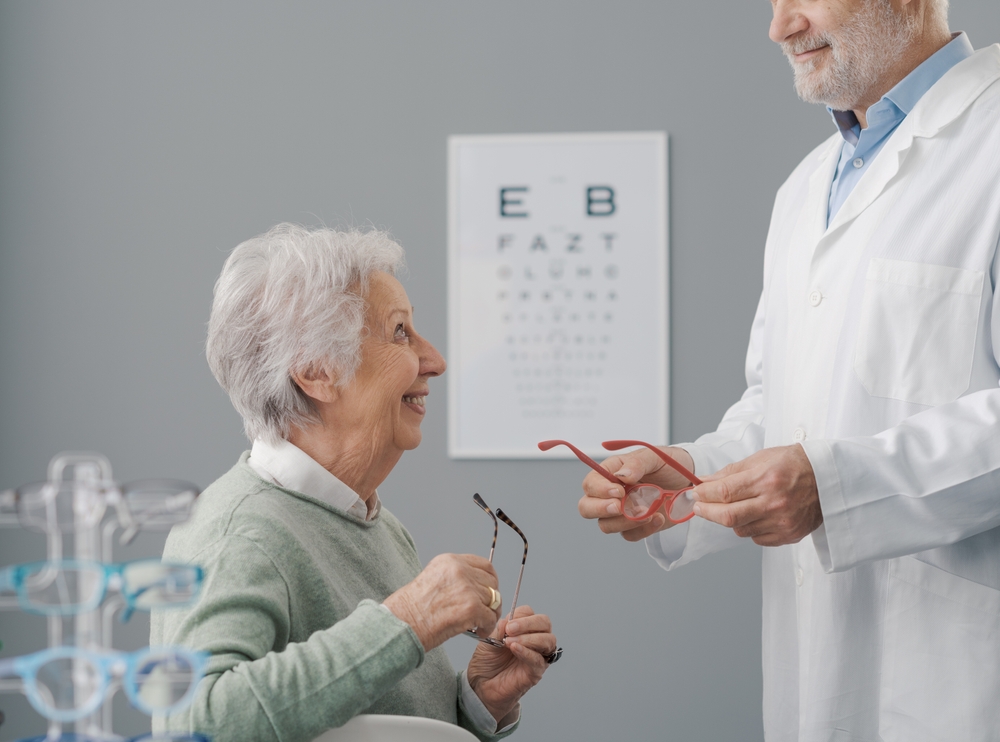
The Hidden Dangers of Relying on Vision Screenings Alone
Blog:The Hidden Dangers of Relying on Vision Screenings Alone

Vision screenings are a quick and convenient way to check for basic vision problems, but they often fall short of identifying serious eye health issues. Many people rely on these screenings alone, assuming their eyes are healthy if they pass. Unfortunately, this can leave critical conditions undiagnosed until it’s too late. At Gwinnett Eye Clinic, we believe that only comprehensive eye exams provide the detailed insights needed to truly protect your vision and overall eye health.
What Are Vision Screenings?
Vision screenings are designed to identify obvious visual impairments, such as difficulty reading an eye chart or issues with distance vision. They are often conducted by non-specialists using basic tools. While useful as a preliminary check, they have limitations:
Limited Scope: Vision screenings primarily assess how well you see at a distance. They don’t evaluate your eye health or detect conditions like glaucoma, cataracts, or retinal disorders.
False Security: Passing a vision screening can create a false sense of assurance that your eyes are healthy when underlying issues may still exist.
Not Personalized: Screenings don’t account for your unique eye care needs, including family history, lifestyle, or age-related changes.
What Can Comprehensive Eye Exams Detect?
A comprehensive eye exam performed by an optometrist goes beyond basic vision checks. These exams include advanced tests to detect a variety of eye and health conditions:
Refractive Errors: Such as nearsightedness, farsightedness, and astigmatism.
Eye Diseases: Including glaucoma, cataracts, macular degeneration, and diabetic retinopathy—many of which show no symptoms in their early stages.
Overall Health Issues: An eye exam can reveal signs of systemic conditions like diabetes, high blood pressure, and even some neurological conditions.
Why Comprehensive Eye Exams Are Crucial
Many eye diseases, such as glaucoma and diabetic retinopathy, develop without noticeable symptoms in their early stages. By the time these conditions affect your vision, significant and often irreversible damage may have already occurred. Regular comprehensive eye exams are essential for early detection and timely treatment, providing the opportunity to address potential issues before they compromise your sight.
During your exam, your eye doctor takes the time to evaluate your eyes based on your unique risk factors, such as age, family history, medical history, and lifestyle. This personalized approach ensures that any potential problems are thoroughly assessed and that your eye care is tailored to meet your individual needs. Whether you require glasses, contact lenses, or monitoring for specific conditions, comprehensive care ensures your vision is in the best hands.
For children, vision is a critical part of learning and development. Unfortunately, school vision screenings often focus solely on visual acuity and may miss more complex issues like amblyopia (lazy eye), binocular vision problems, or tracking difficulties. These undetected issues can lead to struggles in the classroom and other developmental challenges. A comprehensive eye exam provides a deeper assessment of a child’s visual system, identifying and addressing problems that can impact their ability to learn, grow, and thrive.
How Often Should You Have a Comprehensive Eye Exam?
The frequency of eye exams depends on your age, health, and risk factors:
Children: At 6 months, age 3, before starting school, and annually after that.
Adults under 40: Every year, particularly if you wear eyeglasses or contact lenses.
Adults over 40: Annually, especially to monitor age-related changes.
Those with risk factors: Such as diabetes or a family history of eye disease, may need more frequent exams.
Protect Your Vision with Comprehensive Care at Gwinnett Eye Clinic
While vision screenings serve as a helpful first step, they are no substitute for the thorough evaluation provided by a comprehensive eye exam. At Gwinnett Eye Clinic, we use state-of-the-art diagnostic technology to provide thorough, personalized care to protect your vision and overall health.
Schedule your comprehensive eye exam with Gwinnett Eye Clinic and give your vision the attention it deserves. Visit our office in Duluth, Georgia, or call (470) 279-4900 to book an appointment today.


